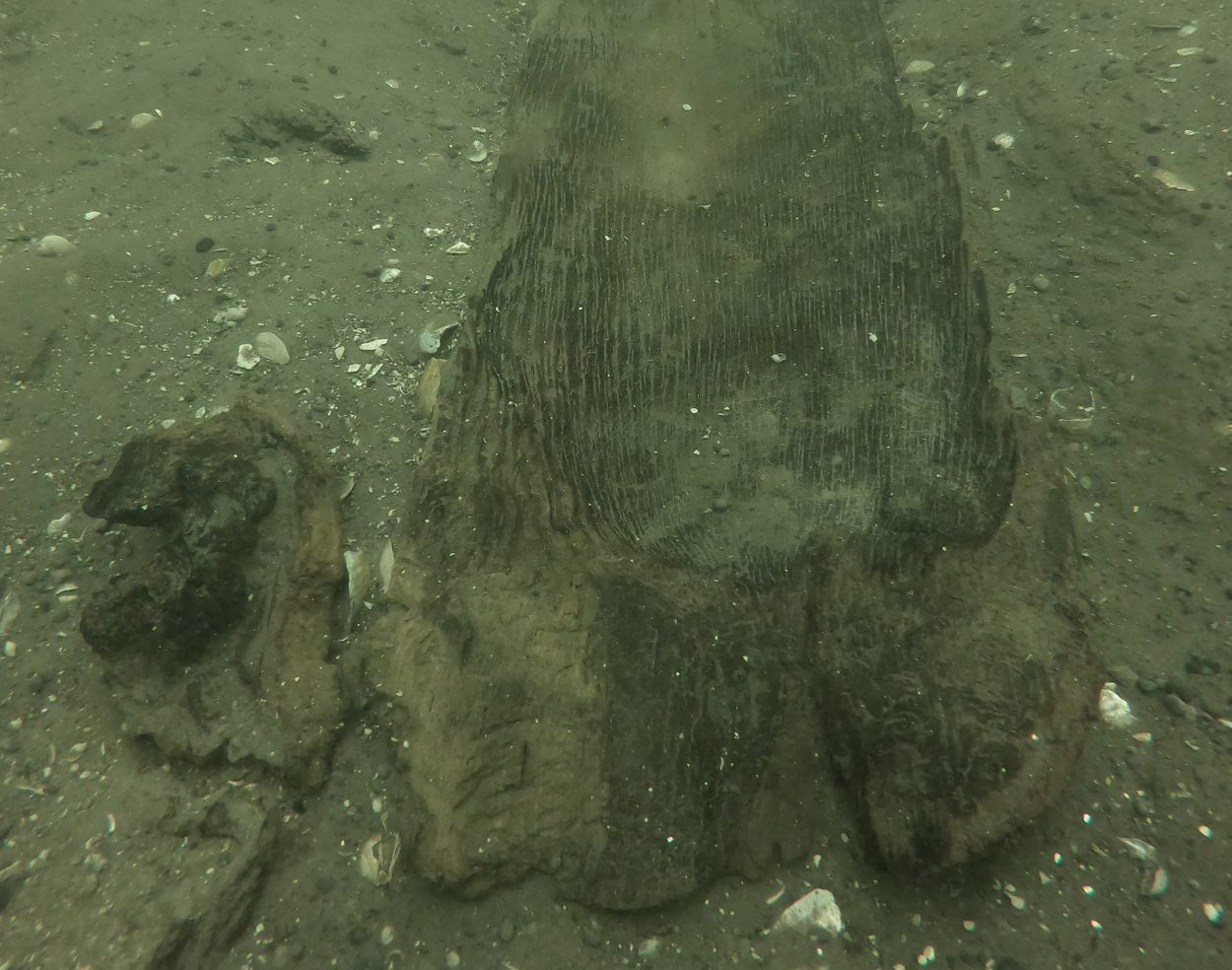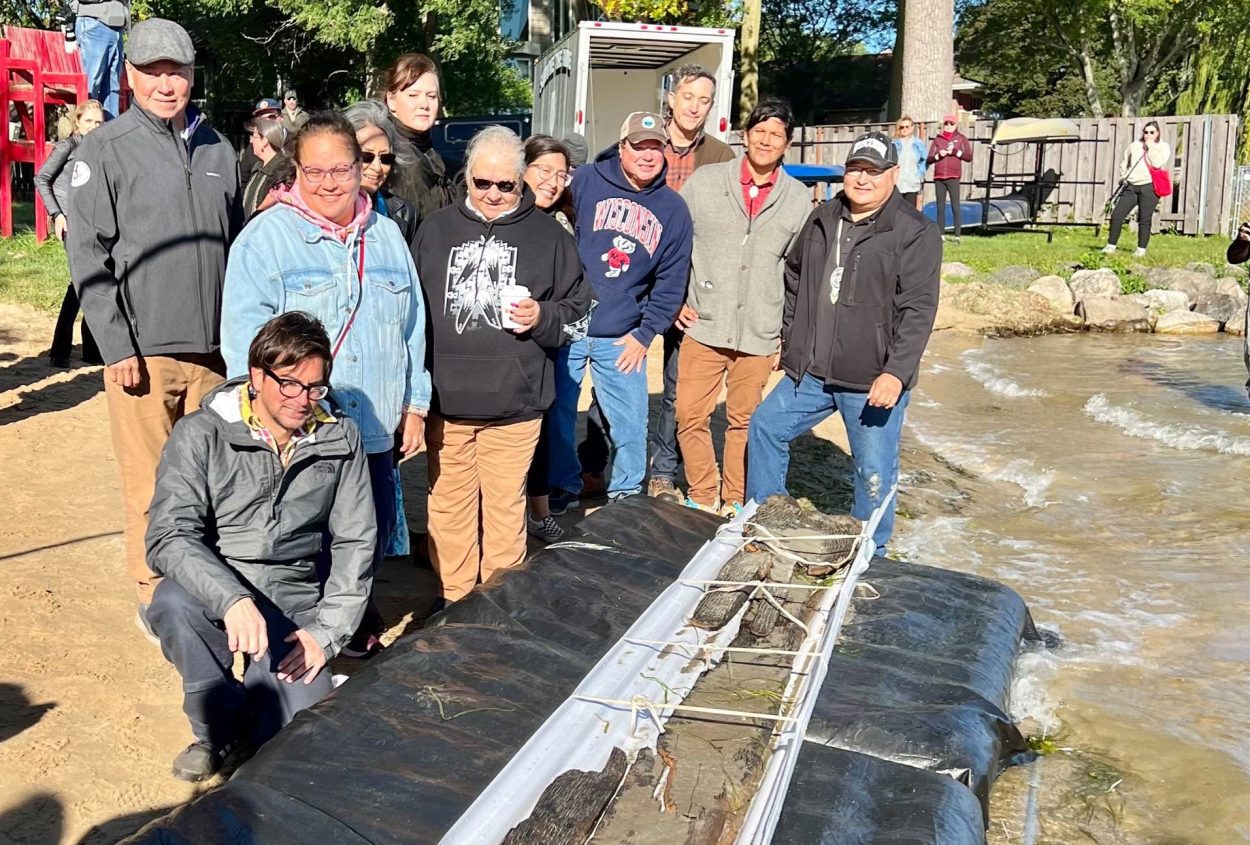Maritime archaeologists from the Wisconsin Historical Society, working alongside the Wisconsin’s Native Nations, have recovered a second ancient canoe in Lake Mendota, Madison, United States.
Back in November 2021, the team found a 1,200-year-old canoe which made international headlines. The team have now discovered a second canoe which is 3,000 years old, making it the oldest ever example discovered in the Great Lakes region by roughly 1,000 years.
The canoe is carved from a single piece of white oak and measures 14.5 feet in length. It was found in the same area the first canoe was discovered, suggesting that the location of Lake Mendota’s shoreline may have changed over time and could have once been much lower, according to Dr. James Skibo, Wisconsin Historical Society state archaeologist.
It was initially located by Wisconsin Historical Society maritime archaeologist Tamara Thomsen during a recreational dive in May of this year. Discussions about recovering it from the lakebed began immediately following the discovery, in collaboration with Wisconsin’s Native Nations.
“Finding an additional historically significant canoe in Lake Mendota is truly incredible and unlocks invaluable research and educational opportunities to explore the technological, cultural, and stylistic changes that occurred in dugout canoe design over 3,000 years,” said Skibo. “Since it was located within 100 yards of where the first canoe was found at the bottom of a drop-off in the lakebed, the find has prompted us to research fluctuating water levels and ancient shorelines to explore the possibility that the canoes were near what is now submerged village sites.”
Although it is likely that water transportation dates back to the arrival of Native peoples in this region, this discovery provides the earliest direct evidence. The 3,000-year-old canoe helps to tell a more complete story of the continuum of Native life in Wisconsin and the Great Lakes region. Members from the Ho-Chunk Nation and Bad River Tribe were present at the canoe recovery.

“The recovery of this canoe built by our ancestors gives further physical proof that Native people have occupied Teejop (Four Lakes) for millennia, that our ancestral lands are here and we had a developed society of transportation, trade and commerce,” said Ho-Chunk President Marlon WhiteEagle. “Every person that harvested and constructed this caašgegu (white oak) into a canoe put a piece of themselves into it. By preserving this canoe, we are honouring those that came before us. We appreciate our partnership with the Wisconsin Historical Society, working together to preserve part of not only our ancestors’ history but our state’s history.”
Wisconsin Historical Society archaeologists, along with skilled volunteers, conducted the excavation and recovery efforts. The canoe was hand-excavated in preparation for today’s recovery mission and then securely transported to the State Archive Preservation Facility in Madison for preservation and storage. It will be cleaned and cared for by Tribal members and Society staff before being hand-lowered into a large preservation vat also containing the 1,200-year-old canoe discovered in 2021. Together the canoes will undergo a two-year preservation process that will conclude with freeze-drying to remove any remaining water.
“I was amazed when a 1,200-year-old canoe was uncovered last year, but this discovery of a canoe dating back to 1000 B.C. is just extraordinary,” said Wisconsin Gov. Tony Evers. “This incredible finding provides an opportunity for us to work in concert with Tribal Nations to not only study but celebrate the history of the Indigenous people who’ve called this land home since long before Wisconsin became a state, and I look forward to learning more about this artefact’s origins.”
Header Image Credit : Wisconsin Historical Society





